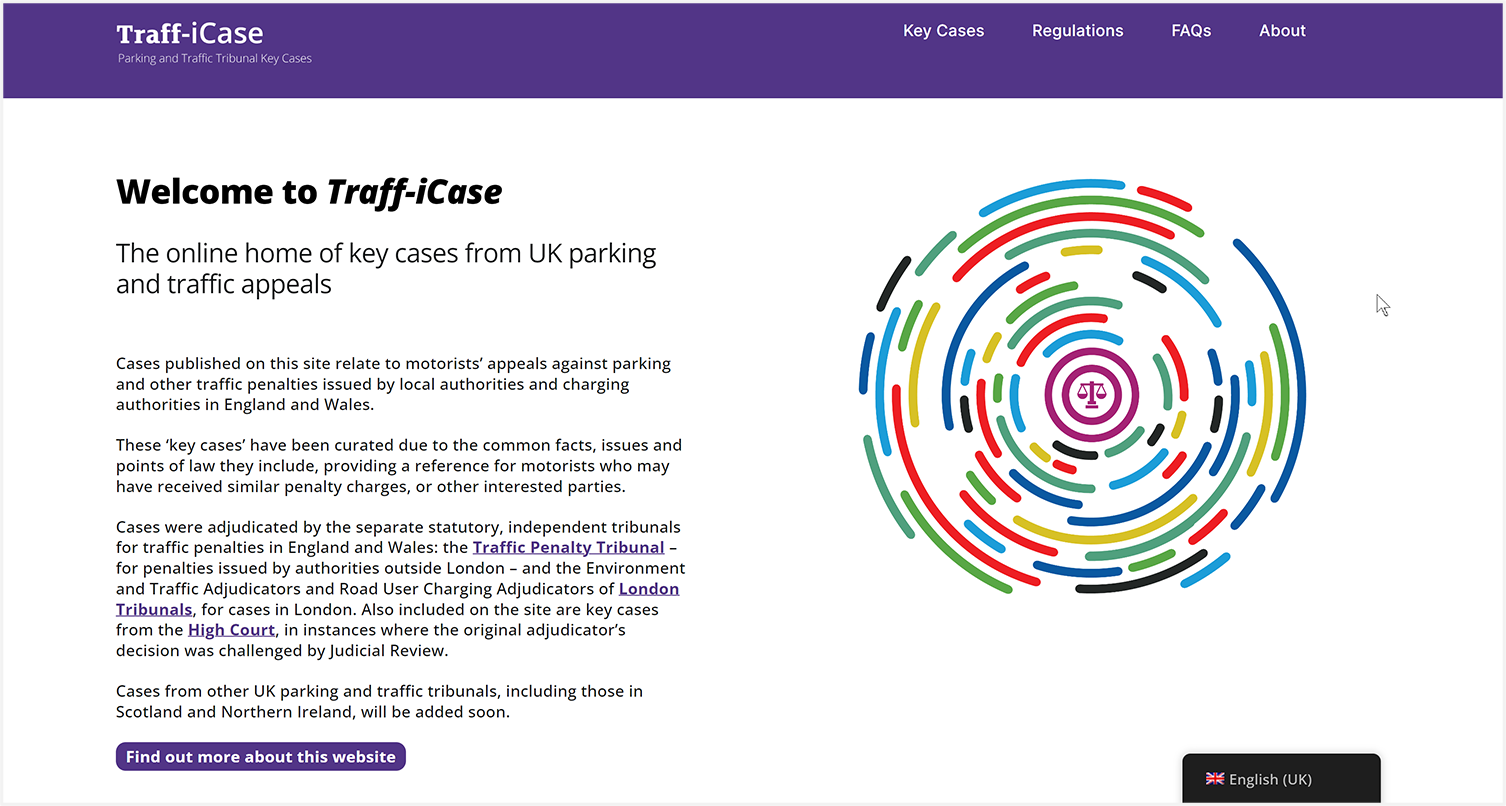The Traffic Penalty Tribunal has launched a website to bring key cases decided by its own adjudicators and those from other UK traffic tribunals together in one place for the first time.
Key cases on the new site, branded as Traff-iCase (opens in new tab), have been curated together due to the common facts, issues and points of law they include, providing a reference for those who may have received similar penalty charges.
Cases currently cover parking, bus lane, moving traffic and road user charging, including the London Congestion Charge and Clean Air Zones (outside London). Also included are key cases from the High Court, in instances where the original adjudicator’s decision was challenged by Judicial Review. All cases are in the public domain and have been selected for the site with a neutral stance on the adjudicating body that first decided them.
More cases and contravention types will be added in the future to cover all civil traffic enforcement jurisdictions in England (inside and outside London), Wales, Scotland and Northern Ireland.

Users of the Traff-iCase site can benefit from searching for cases by contravention type and issue, with the intention that motorists may be better placed to make an informed choice about submitting an appeal. Other interested parties; for example, the media or motorist groups, may use the information to help improve the accuracy and relevance of their content.
Further information on the Traff-iCase website to help inform users can be found in a comprehensive interactive library of legislation and regulations, as well as a repository of Frequently Asked Questions (FAQs).
Caroline Hamilton, Chief Adjudicator of the Traffic Penalty Tribunal, said: ‘I hope that by outlining and clarifying common issues in appeals, along with the legislation and regulations governing civil traffic enforcement – all in one accessible location – the Traff-iCase site will become a valuable resource for motorists, local authorities, the media and other stakeholders.’
‘The law and issues of traffic enforcement frequently confuse and divide opinion, and are often misinterpreted, so providing a go-to online hub for such information, published by a legitimate, statutory body, was a key objective of the project.’
– Caroline Hamilton, Chief Adjudicator
The development and ongoing management of the site is funded by Parking and Traffic Regulations Outside London (PATROL) (opens in new tab). PATROL is a joint committee of over 300 local authorities and charging authorities in England (outside London) and Wales, with a statutory role to make provision to fund the Traffic Penalty Tribunal. Authorities that undertake civil traffic enforcement are required by statute to make provision for independent adjudication for motorists’ appeals against any resulting penalties they issue.
Laura Padden, Director of PATROL, said: ‘PATROL has supported and funded the Traff-iCase project with the intention that it will be an excellent educational tool, whether to improve consistency among local authorities approaching cases or the awareness and understanding of restrictions among motorists.’
Adjudicator decisions can be persuasive, but are not binding.
Each appeal is decided on its evidence and facts
While a finding made by an adjudicator in one decision can be relevant and persuasive when considering another appeal that engages the same issues, the evidence and facts of each case are important, may make a material difference and be the basis for reaching a different conclusion.
Adjudicator decisions can be persuasive, but are not binding.
Each appeal is decided on its evidence and facts
While a finding made by an adjudicator in one decision can be relevant and persuasive when considering another appeal that engages the same issues, the evidence and facts of each case are important, may make a material difference and be the basis for reaching a different conclusion.










